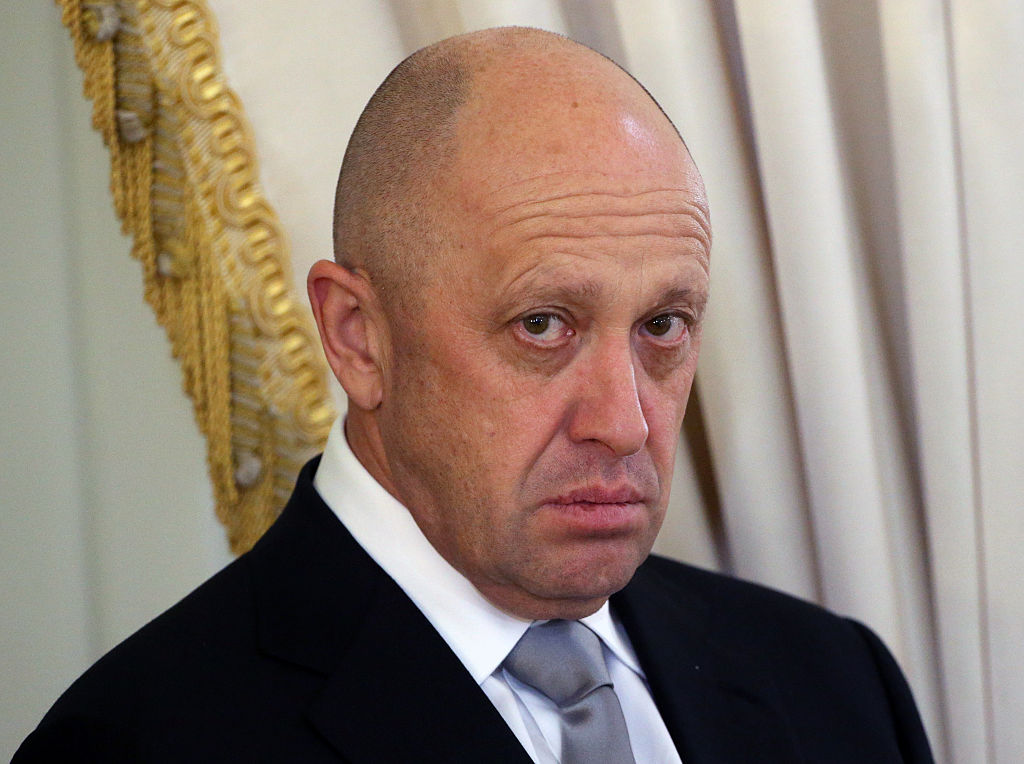
Wagner Group founder Yevgeny Prigozhin’s mother won a European Union court appeal against her inclusion on the bloc’s sanctions list following Russia’s invasion of Ukraine.
Violetta Prigozhina was targeted in February last year through her association with her son, whose mercenary group has played a key role in Vladimir Putin’s increasingly all-encompassing war effort. The E.U. General Court, the bloc’s second-highest tribunal, on Wednesday annulled her inclusion on the list.
Even if Prigozhin “is responsible for actions undermining the territorial integrity, sovereignty and independence of Ukraine,” the link between mother and son “is based solely on their family relationship and is therefore not sufficient to justify her inclusion on the contested lists.”
Russian billionaires and family members hit by E.U. sanctions over President Vladimir Putin’s invasion of Ukraine have been flocking to the bloc’s courts in Luxembourg in an attempt to extricate themselves from the list and have their funds unfrozen again.
Known as “Putin’s chef” for his background in the restaurant business in the president’s hometown of St. Petersburg and Kremlin catering contracts, Prigozhin has emerged as one of the leading players as the war enters its second year.
The E.U. said it added his mother to its sanctions list for having “supported actions and policies which undermine the territorial integrity, sovereignty and independence of Ukraine” through her association with her son and companies linked to him, such as Concord Management and Consulting LLC.
She attacked the claims as lacking “specific reason” and has disputed “being currently linked” to Concord Management, arguing that “it cannot legitimately be inferred from the links to her son that she may have contributed to compromising the territorial integrity of Ukraine.”
While the ruling is a victory for Prigozhin’s mother, it might just be a temporary one. The E.U. often adds people back onto the sanctions list after a court defeat, based on new or extended justifications for their inclusion. A European Council official declined to comment on the ruling or the next steps.
Prigozhin was able to pass U.K. anti-money laundering checks by submitting a utility bill in the name of his mother in St Petersburg, according to emails seen by Bloomberg.
A cache of hacked emails from a Russian law firm that represented Prigozhin was made available for the general public by a not-for-profit whistle blowing site. The Financial Times has reported on the messages previously.
Pavel Karpunin, a partner at the law firm Capital Legal Services, said that the firm was “unpleasantly surprised and even shocked” when Prigozhin publicly confirmed that he founded Wagner. Karpunin said the firm stopped work with the warlord before his public comments in September and that any further cooperation was “impossible.”
Wagner’s tactics have represented a departure from conventional Russian methods, as Prigozhin added thousands of inexperienced prison convicts to his forces, offering them exoneration once their service was complete. U.S. President Joe Biden’s administration has designated the Wagner Group a transnational criminal organization in an effort to blunt its powerful role on the battlefield in Ukraine and around the world.
Prigozhin over the weekend blamed “ordinary bureaucracy or betrayal” for the ammunition shortage among his forces fighting in Bakhmut. He wrote a letter to the military campaign’s top commander urgently requesting more supplies.
— With assistance from Jonathan Browning and Gregory L. White.
More Must-Reads from TIME
- Cybersecurity Experts Are Sounding the Alarm on DOGE
- Meet the 2025 Women of the Year
- The Harsh Truth About Disability Inclusion
- Why Do More Young Adults Have Cancer?
- Colman Domingo Leads With Radical Love
- How to Get Better at Doing Things Alone
- Michelle Zauner Stares Down the Darkness
Contact us at letters@time.com